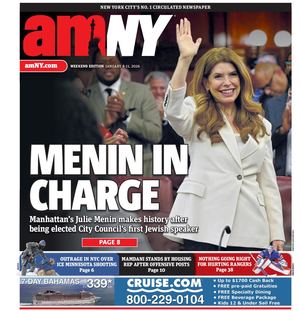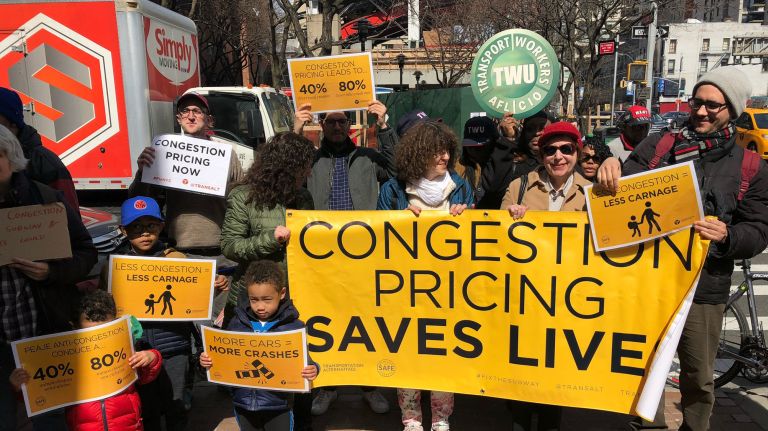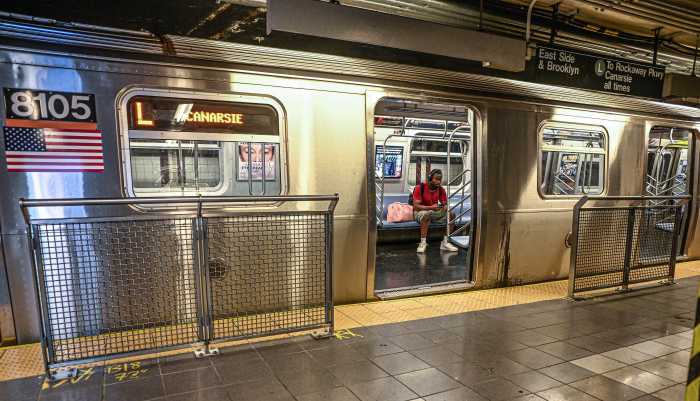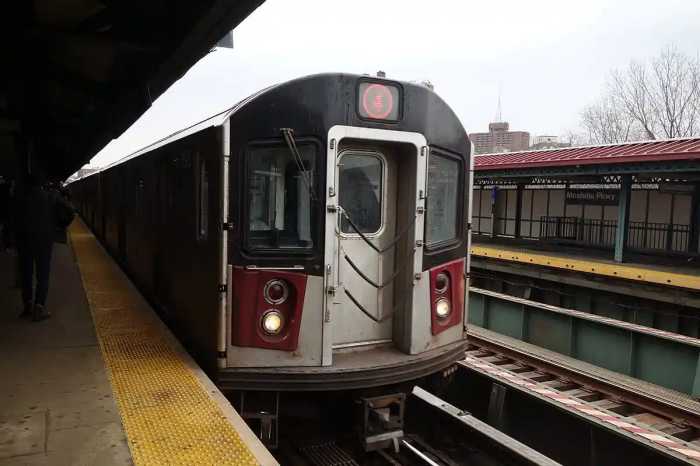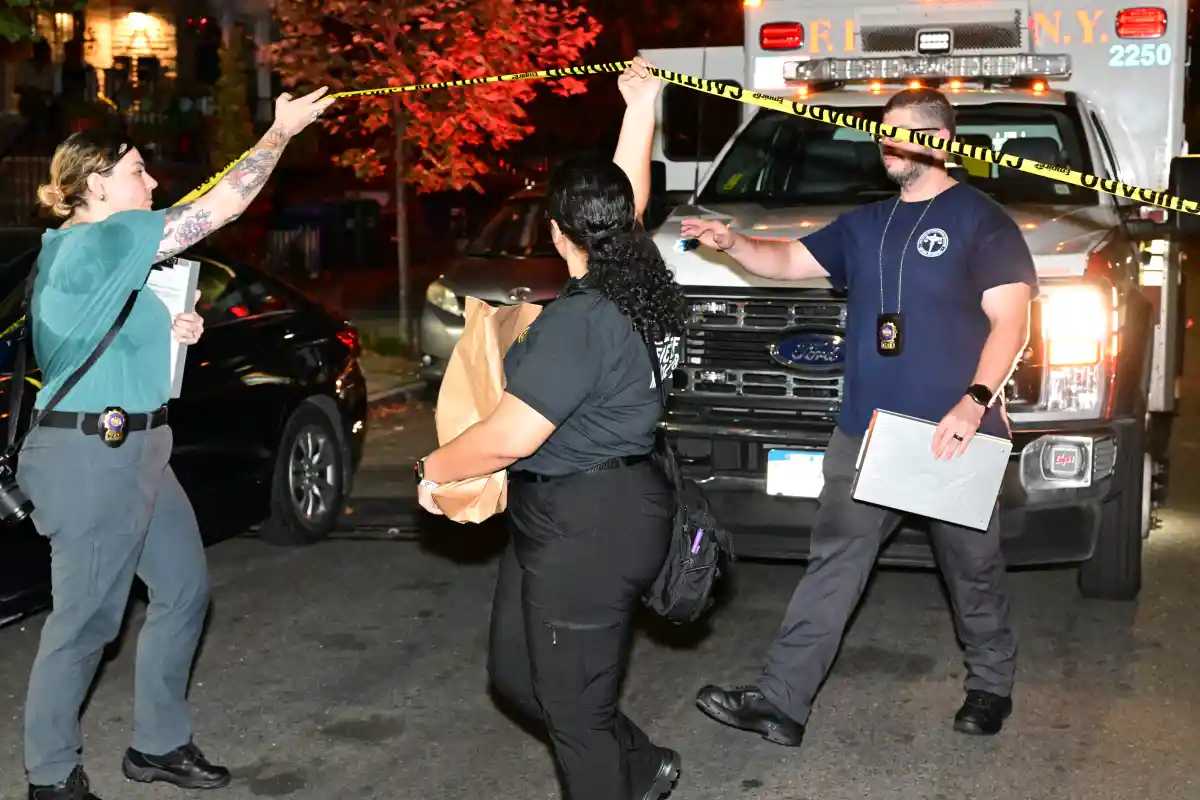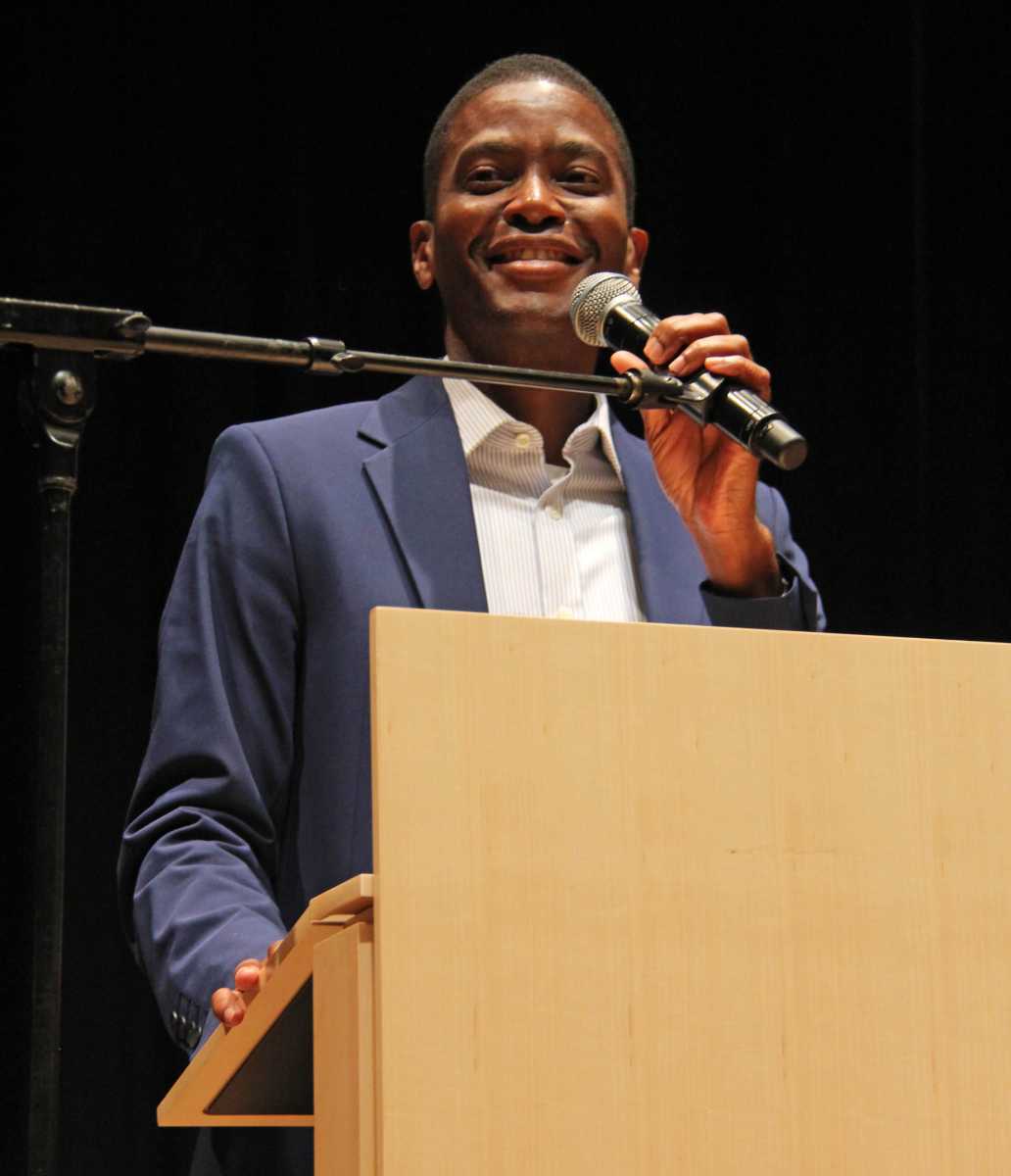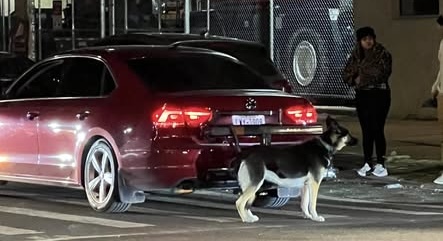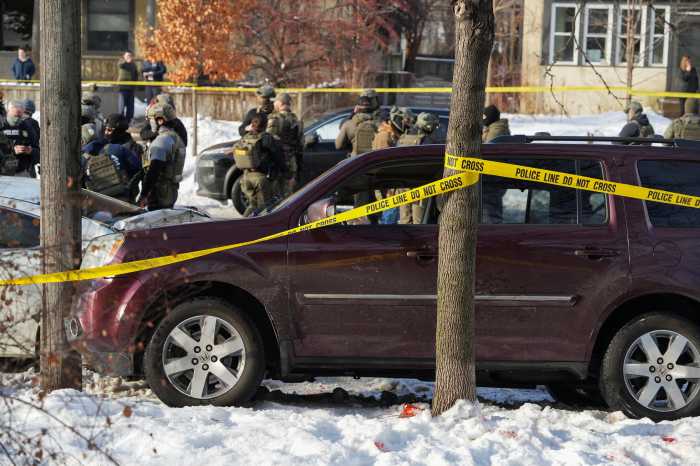
Supporters of a congestion traffic pricing proposal for Manhattan rear-ended an opposition news conference in a testy but civil clash on Sunday.
The contentious event dramatized the stubborn divisions over the plan to toll cars entering Manhattan around 60th Street as Gov. Andrew Cuomo tries to rev up support as part of a state budget due to be approved in a week on April 1. The governor, advocates and the MTA view the tolls as an important way to reduce traffic while also raising critical revenue for improvements at a transit authority that has big budget gaps.
“There is a real proposal out there right now that would … lead to a vast improvement in our transportation system — from decongesting streets, to allowing buses to move, to having a dedicated revenue stream to make sure capital improvements happen on our subway system to bring them up to 21st-century standards,” said Thomas DeVito, the advocacy director at the nonprofit Transportation Alternatives, which attended the east midtown protest. “And we need to move on that.”
Opponents, led by outer borough Assembly members David Weprin (D-Hollis Hills) and Rodneyse Bichotte (D-Brooklyn) and Queens Councilman Barry Grodenchik, criticized Cuomo’s pitch for lacking key details, such as the exact price of the tolls. They also raised familiar concerns on congestion pricing: that it would burden car-dependent residents of transit deserts and that the MTA can’t be trusted with new funding.

“This is … the Seinfeld of congestion pricing plans: it’s about nothing. There is no accountability,” said Grodenchik.
As Grodenchik and the others spoke, pro-congestion pricing activists swarmed in behind them. Members of Transportation Alternatives, the transit workers union and others shouted them down, chanting “vote them out” and “fix our transit.”
Cuomo, who effectively controls the MTA, is pushing a congestion pricing plan that would, when settled, generate $1 billion in revenue annually for the MTA. That revenue stream could also be used to raise even more money in bonds.
The mountain of cash would go toward paying for the next five-year capital program the MTA is currently piecing together for 2020 to 2024, which some expect to cost $60 billion. That program will include NYC Transit President Andy Byford’s plans to modernize a significant portion of the MTA’s subway signal system; redesign of every borough’s bus routes and greatly increase the number of wheelchair-accessible subway stations.
“We are currently engaged in positive conversations with both houses [of the State Legislature] to reach these important goals,” said Patrick Muncie, a spokesman for the governor, in a statement.
Weprin stressed that he supports some other policies Cuomo and others have floated to help fund the MTA like taxes on internet sales, marijuana and pricey pied-à-terres.
Those initiatives could raise about $10.25 billion over five years, according to calculations from the Permanent Citizens Advisory Committee to the MTA. Congestion pricing bonds could raise another $15 billion, according to Cuomo.
Without the congestion pricing piece, Weprin argued the MTA could make up the difference through cost-cutting reforms.
“We want to fix the MTA, but before we fix the MTA … there’s mismanagement at the MTA and we need to restructure,” Weprin said, straining to speak over the crowd that crashed the news conference.
Bichotte and Weprin said the tolls would negatively impact “working-class” New Yorkers and challenged the idea that congestion pricing would meaningfully reduce traffic as it has in other cities around the world.
“Lies!” one man in the crowd shouted. “Working-class New Yorkers ride the subway!”
Those New Yorkers also ride the bus, said J.P. Patafio, vice president for Brooklyn buses at TWU Local 100. He said congestion pricing would help unclog Manhattan streets and keep buses moving.
“We have millions of people that we move around every day and they need a way to get in and out of the city that’s quick, safe, efficient … and that’s transit,” Patafio said. “Otherwise, what’s your plan to improve transit that moves six million people a day?”
